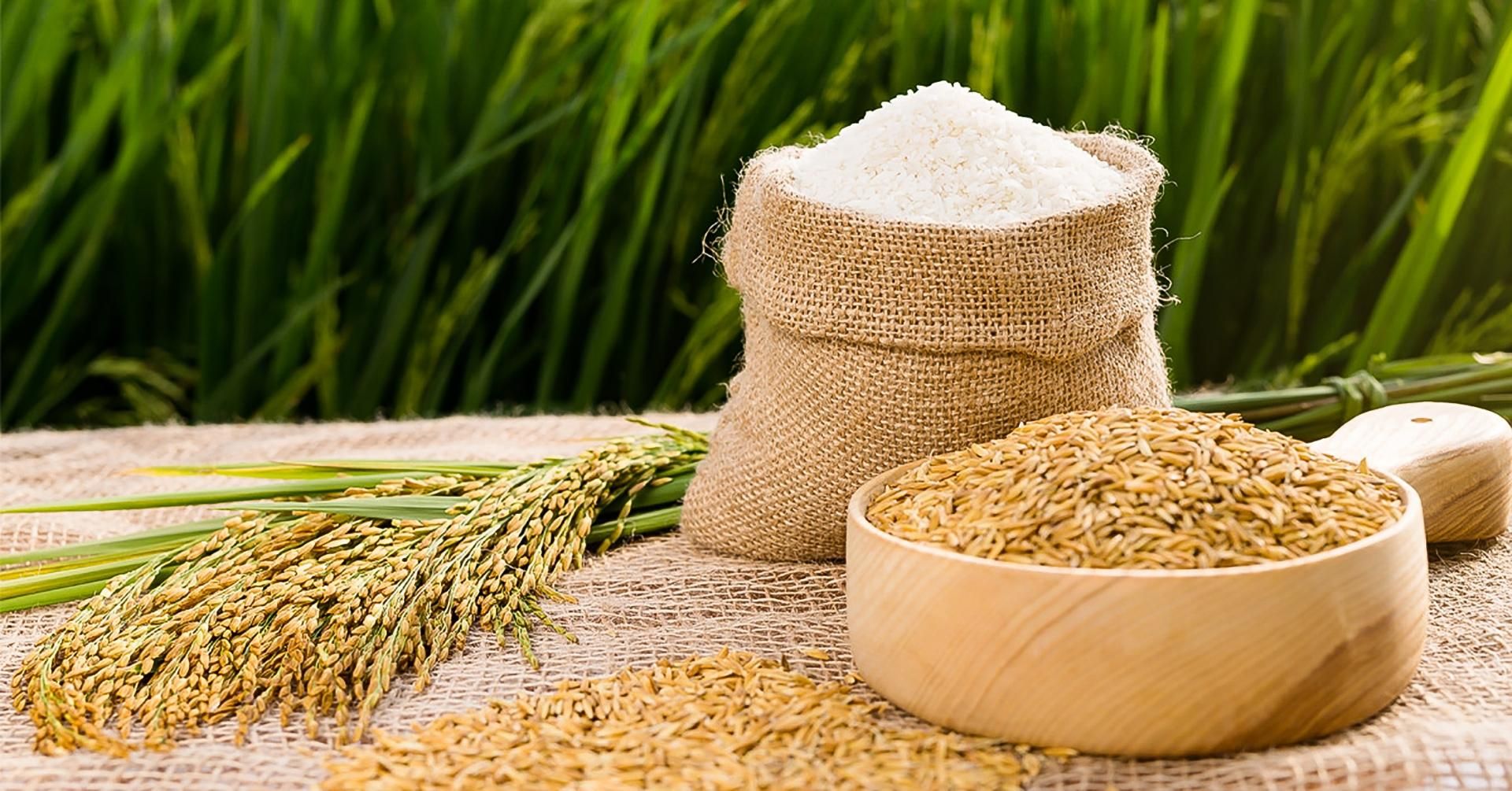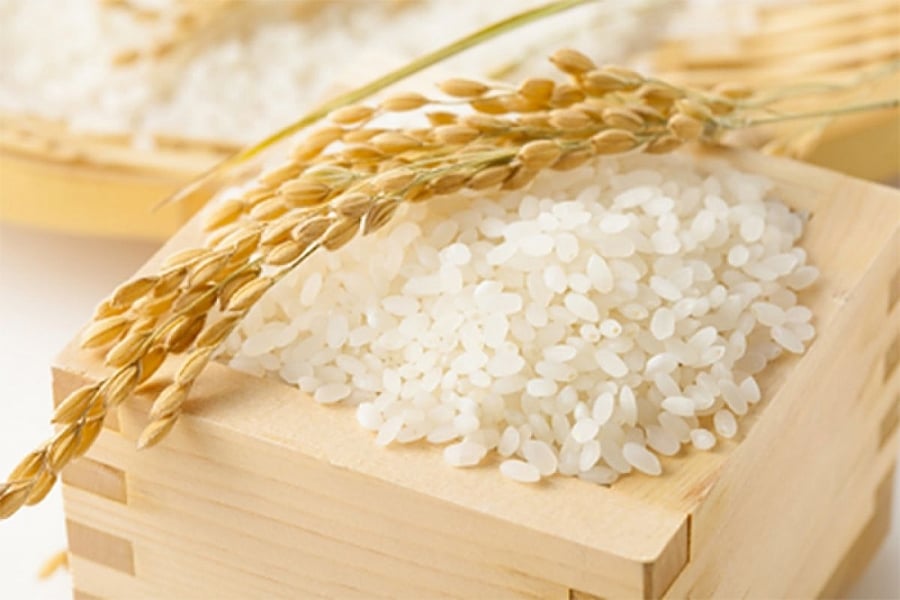June 16, 2025 | 03:04 GMT +7
June 16, 2025 | 03:04 GMT +7
Hotline: 0913.378.918
June 16, 2025 | 03:04 GMT +7
Hotline: 0913.378.918

The Ministry of Industry and Trade has just issued a directive related to rice export.
The Ministry of Industry and Trade has issued a directive on strengthening market information activities, trade promotion, developing rice export markets, and stabilizing the domestic market during the current period.
In recent times, the global grain trade situation has become complex and unpredictable due to the influence of various factors.
In light of this context, the directive aims to ensure the effective management of rice exports, ensuring the consumption goals of rice and rice products, safeguard the interests of rice farmers, balancing export and domestic consumption, ensuring the minimum stockpile as required while assuring efficient export operations.
In this directive, the Ministry of Industry and Trade requires the Trade Remedies Authority to implement activities to warn of the risk of being investigated under trade remedies, prevent the evasion of trade remedy measures, and assist rice exporters in cases where they are subject to investigation by importing countries, provide assistance with applying trade remedy measures, preventing the evasion of trade remedy measures within the scope of their responsibilities and authority.
The mission of the General Department of Market Management is to direct local market management forces to enhance coordination with relevant agencies at local levels in closely monitoring the rice price situation, conducting inspections, and controlling business establishments to oversee supply sources, pricing, and prevent violations related to price listing, speculation, hoarding, and unreasonable pricing of rice products.
Furthermore, it involves strengthening inspections and preventing the transportation and trading of rice with unclear origins and sources. Strictly enforcing legal provisions against organizations and individuals that violate these regulations.
For markets involved in rice production and exports (such as India, Thailand, Pakistan, Cambodia, the United States, etc.), the Ministry of Industry and Trade instructs the Vietnamese Trade Office in those countries to proactively update information on production seasons, rice consumption prices in local markets, export situations, and related policy developments in the global grain market, which is subject to significant fluctuations. This information should be regularly or promptly relayed to the Agency of Foreign Trade and the Department of Foreign Markets.
Within the domestic market, the Ministry of Industry and Trade monitors the market situation closely and proactively instructs local Industry and Trade Departments to prepare supply sources, ensure quality, and balance supply and demand for rice products in the domestic market. This is to meet the timely and complete demand of the population and contribute to stabilizing rice prices in particular, and food prices in general, thereby ensuring national food security.
For rice exporters, the Ministry of Industry and Trade recommends proactive monitoring of global rice trade trends, exporting countries' actions, import countries' consumption needs, and collaborating with associations to devise production and trading strategies, and negotiation plans to ensure effective exports.
In addition, active participation in local market stabilization programs is encouraged, contributing to stabilizing domestic rice and grain prices and ensuring national food security.

Food security is considered the top priority.
Regarding the rice issue, in the afternoon of August 15th, while addressing questions in the National Assembly, Minister Le Minh Hoan stated that the Ministry of Agriculture and Rural Development had promptly reported to the Prime Minister. The Prime Minister had also issued directives through official communications when there were concerns about food security or when certain countries banned rice exports, providing us with opportunities and timing.
The Minister recommended that all relevant parties maintain a calm attitude, as every issue can have its downside if not managed well. Analyzing only one aspect or one side would not provide a comprehensive view.
The Minister shared that agricultural prices in general, including rice prices, adhere to the law of supply and demand. Additionally, in Vietnam, rice prices are affected by various other issues such as deposit arrangements, agreements, transactions, and seasonal variations.
Given the current high rice prices, the Minister urged all parties to respect each other and share opportunities. He emphasized the importance of ensuring that next season, people can continue to trade, negotiate, and do business with each other.
Also in the Minister’s opinion, the Prime Minister and the Government have provided clear directives. The foremost task is to ensure food security, and then to promote rice exports. The Minister likened rice exports to a commitment Vietnam has with the global food market.
Translated by Nguyen Hai Long
![Turning wind and rain into action: [4] Bringing climate bulletins to remote and isolated areas](https://t.ex-cdn.com/nongnghiepmoitruong.vn/608w/files/linhnhp/2025/06/14/1152-z6704423696987_15fd32ffc26d590d204d520c9dac6786-nongnghiep-151141.jpg)
(VAN) The Vietnam Agriculture and Nature Newspaper interviewed Mr. Vu Thai Truong, Acting Head of Climate Change and Environment at UNDP Vietnam, to gain deeper insight into how climate bulletins are delivered to farmers.

(VAN) In Tien Giang, a high-tech shrimp farm has developed a distinctive energy-saving farming model that has yielded promising results.
![Turning wind and rain into action: [3] 300.000 farmers benefit from agro-climatic bulletins](https://t.ex-cdn.com/nongnghiepmoitruong.vn/608w/files/news/2025/06/12/e5a48259d6a262fc3bb3-nongnghiep-125122.jpg)
(VAN) The agro-climatic bulletin has become a valuable tool for farmers in the Mekong Delta. After more than five years of implementation, the initiative is gradually being expanded nationwide.
![Turning wind and rain into action: [2] Providing forecasts to the people](https://t.ex-cdn.com/nongnghiepmoitruong.vn/608w/files/news/2025/06/12/e5a48259d6a262fc3bb3-nongnghiep-103927.jpg)
(VAN) In addition to improving the quality of hydrometeorological forecasts, putting forecast bulletins into practical use is crucial for production and disaster prevention.

(VAN) Blue carbon is receiving attention for its rapid absorption capacity and vast potential. It represents a promising nature-based solution to respond to climate change.
/2025/06/11/3507-1-161904_583.jpg)
(VAN) Seagrass beds and coral reefs serve as 'cradles' that nurture life in the ocean depths, creating rich aquatic resources in Vietnamese waters.
![Turning wind and rain into action: [1] Forecasting for farmers](https://t.ex-cdn.com/nongnghiepmoitruong.vn/608w/files/news/2025/06/11/e5a48259d6a262fc3bb3-nongnghiep-111919.jpg)
(VAN) Weather is no longer just a matter of fate. Forecasts have now become an essential companion for farmers in every crop season.